All of us, at one time or another, have been assigned books to read, either in high school or in college, that we… didn’t care for, let’s say. But no matter how much you may have hated reading The Great Gatsby or Catcher in the Rye, you can’t really argue that they were particularly difficult books to get through. They’re fairly short, and while they may be thematically dense – for good or ill – they’re also relatively quick reads.
Not so with the ten books on this list. These are among the most difficult books to read, notable for the dread they often inspire in school curriculums, the complexity of their language, and the simple thickness of their spines. If you were ever assigned any of these books—or if you just made it through them on your own—then you’ve really accomplished something special.
Of course, difficult isn’t synonymous with “bad,” and while many of us may have dreaded being assigned some thematically dense, linguistically challenging doorstopper of a novel in class, there’s a reason why pretty much every book on this list is a well-regarded (and much-beloved) classic. It just doesn’t change the fact that they’re not always the easiest books to read…
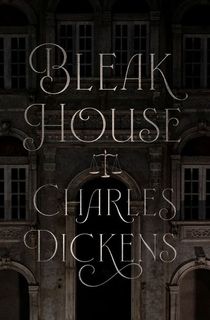
Bleak House
There’s a joke that makes the circles in many a college English department about Charles Dickens getting paid by the word—and you can certainly see why when you try to crack Bleak House, quite possibly his longest novel. (David Copperfield edges it out by wordcount, but Bleak House usually ends up with more pages, for various reasons.)
In proper Dickensian fashion, Bleak House is populated by a massive cast of characters, including no less than two narrators. Its elaborate story is filled with plots and subplots aplenty, and revolves around a complicated and seemingly intractable court case – which can certainly prove dry reading for many who attempt to approach the gargantuan tome, clocking in at around 900 pages long.
Also, as the title might imply, Bleak House can be, well… kind of bleak. Though it's sprinkled throughout with Dickens’ wit and sly humor, it’s also filled with poverty, injustice, and the kinds of social commentary that were Dickensian specialties. Which means that in addition to being a very long read, it’s also a bit of a grim one.
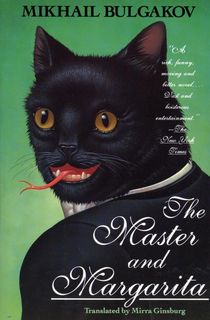
The Master and Margarita
Clocking in at under 500 pages, Mikhail Bulgakov’s The Master and Margarita is far shorter than many of the books on this list. What landed this book on the list is its complexity: it is at times absurd, filled with magical realism and humor, but at its core it is a tense political commentary, a meditation on power and the nature of good and evil. Bulgakov manages to weave together everything from Jesus Christ to political ideology, from love to a giant, vodka-drinking cat. Yes, really.
Set in Soviet Moscow, this book follows the Devil as he wreaks havoc on the lives and beliefs of the people within the officially atheist country. Caught in the chaos are the Master and Margarita. The Master: an author, daring to write a book on subversive subjects. Margarita: his beautiful beloved.
When Bulgakov first wrote this book in the 1930s it could not be published, as it was banned by Soviet censorship. It was only in the 1960s, years after Bulgakov had passed, that the book began to be published in parts, before its first full publication in 1967.
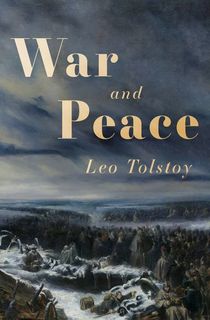
War and Peace
What is there to say about Tolstoy’s classic War and Peace? It’s one of the longest and most ambitious books ever written, clocking in at well over 1,000 pages. That’s… a lot of reading, especially when it makes frequent digressions into Russian history and philosophy. Set during the Napoleonic Wars, it follows the lives of numerous characters, showing how war affects not only those fighting in it, but also those on the home front—themes that haven’t stopped resonating, even more than 150 years after its original publication.
Though it’s been considered his greatest work, Tolstoy himself didn’t regard War and Peace as a novel in the true sense, saying that it is “not a novel, even less is it a poem, and still less a historical chronicle.” So what is it then? Difficult to read, certainly, as later chapters abandon narrative altogether to dive deep into matters of philosophical contemplation.
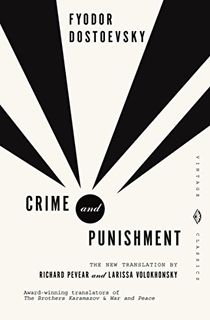
Crime and Punishment
Going even deeper into Russian history we get to Crime and Punishment, another one of those books that everyone knows, but very few have actually read. Dostoevsky wrote this tale upon returning from ten years of exile and forced military service in Siberia, where he was sent for reading and discussing banned books in the Petrashevsky Circle.
Crime and Punishment is a deeply psychological novel following Rodion Raskolnikov, a young man in St. Petersburg, as he commits a murder and is forced to deal with the aftermath. After the crime, Rodion faces intense guilt and paranoia. His previously held justification of the murder, that he would use the wealth he took from the victim for the greater good, begins to falter.
This book is considered one the greatest and most renowned works of literature in history. It is the masterpiece of one of the best authors to ever live. It is long, complicated, and disturbing, but worth the work that it takes to get through it.
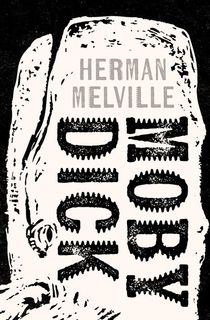
Moby Dick
After those last couple of tomes, Herman Melville’s magnum opus feels positively brief by comparison, clocking in at a “mere” 720 pages. Those 720 pages are barnstormers, though. Widely considered one of the “Great American Novels,” Moby-Dick is jammed front-to-back with dense themes, poetic language, and plenty of nautical terminology that can leave more landbound readers all at sea. Despite that, it’s one of the most famous books in the world, and features one of literature’s best-known first lines: “Call me Ishmael.”
D. H. Lawrence called it “the greatest book of the sea ever written,” while William Faulkner said that it was a book he wished he had written himself. Not every person who tried to crack its often seemingly impenetrable tale of monomania and one man’s quest for a white whale has found the job an easy go, however, and even in Melville’s time the book was seen as a commercial failure, only attaining its great reputation after the author’s death.

Infinite Jest
One of the newest books featured in this list, David Foster Wallace’s 1996 work Infinite Jest challenges and strains against the very definition of a novel. Infinite Jest is over 1,000 pages, with hundreds of detailed endnotes, some of which have their own footnotes. The book is set in an imagined future and has a nonlinear structure that throws readers into the middle of the action. With multiple main plot lines, many important characters, and erroneous or made up words populating the pages, nobody is describing this epic as an easy read.
This book is at once quite entertaining and an insightful philosophical inquiry into entertainment itself, a story of family and human connection in the format of a thoroughly annotated encyclopedic novel. It deals with many themes such as mental health, addiction, national identity, consumption, media, and tennis. Take the plunge into this wild book that made David Foster Wallace a bestseller and a household name.
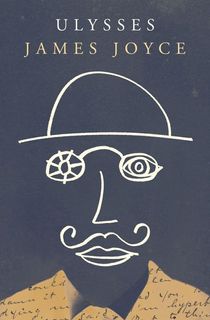
Ulysses
Like Moby Dick, James Joyce’s classic novel Ulysses is “only” around 720 pages long—it also travels a remarkably small distance, compared to many of the other books in this list, taking place on a single day within the city of Dublin, despite its thematic connection to Homer’s much more traditionally epic Odyssey.
Divided into sections and written in a dizzying array of styles, from stage play to stream-of-consciousness, Ulysses is a novel like no other, and is considered by many to be the “demonstration and summation of the entire movement” of modernist literature, a school with which Joyce was inextricably linked. Such formal boldness may make the book a dazzling example of the movement—and, in many estimations, of literature itself—but it doesn’t exactly make it an easy or simple book to read.

One Hundred Years of Solitude
This book is considered by many to be simply the best: the best work of Colombian literature, Latin American literature, or even world literature. Emerging from the Latin American literary boom of the 1960s and ‘70s, Gabriel García Márquez tells the story of seven generations of the Buendia family, the founders and inhabitants of a fictional Colombian town called Macondo.
This book is difficult for several reasons. García Márquez incorporates magical realism into the telling of this family’s history, using supernatural and mythical elements to display the characters’ human errors. Readers must be ready to forget their expectations of what counts as “real.” Another aspect of the book that can make it hard to follow is the extensive family history and the recurrence of character names. There are many characters to keep track of over the course of the generations, a task that is further complicated by the complex lineage caused by incense and the repetition of character names in different generations.

Gravity's Rainbow
There is an exchange, in the 2019 film Knives Out, in which Benoit Blanc, our resident gentleman detective, mentions Gravity’s Rainbow by Thomas Pynchon. “I’ve never read it,” Marta Cabrera replies. “Neither have I,” Blanc says. “Nobody has.”
Despite its reputation for being, among other things, impenetrable, Gravity’s Rainbow was actually selected to receive the Pulitzer Prize for Fiction in 1974. It didn’t actually get the prize, however, when the advisory board deemed it “unreadable,” “overwritten,” and “turgid,” among other things. Instead, no Pulitzer Prize for Fiction was issued that year.
Quite a legacy, and also a pretty good indication of why Gravity’s Rainbow tends to dominate lists of books that are difficult to read. Set at the end of World War II, the novel centers on the production of V-2 rockets and gets… pretty in-depth in the subject. The Literary Encyclopedia called it “the postmodern novel” and said that it redefined “both postmodernism and the novel itself.” A stunning accomplishment, perhaps, but not one that makes for casual beach reading.

House of Leaves
Like the one that appears in the family home described in this book, House of Leaves is a maze. At the core of the novel is a story of the Navidson family who move into a house of horrors with a mysterious hallway leading to an inescapable maze. However, there are many layers of narrative built around that core.
The main narrator of this book is Johnny Truant. His story is told through footnotes, commentary, and annotations he makes to a piece he has found written by an author named Zampanò. Zampanò’s work is a complex academic examination of a film called “The Navidson Record.” “The Navidson Record” is a documentary film that tells the story of the Navidson family, which brings us back to the core.
It is easy to see why this book is a difficult read. Danielewski breaks all normal conventions, with passages written in different styles, fonts, and colors. The book has many self-contained and fictional media references, essentially forcing a reader to be immersed into an alternate reality.
Featured photo via Unsplash / Spencer




